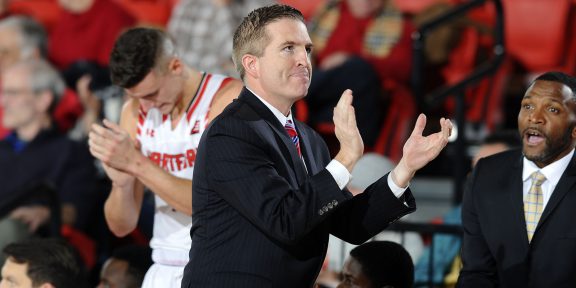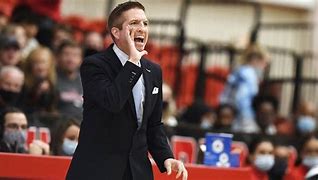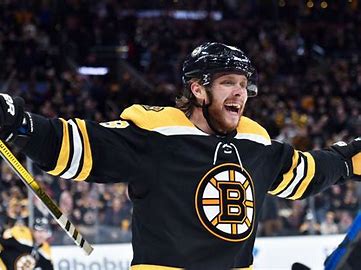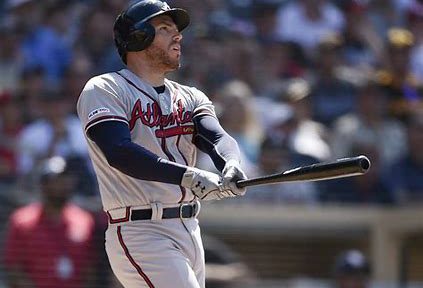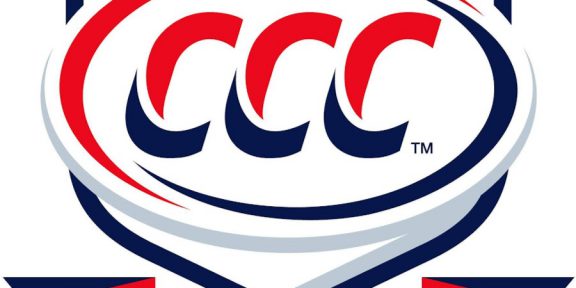Philosophically, sports are often times referred to as an allegory for life. Like life, in an organized, vying competition, whether during a particular game or over a long, enduring season, there are moments of triumph and failure, peaks and valleys, determination and grit, commonality and unexpectedness. Similarly, sports can be gruelingly and unexplainably unfair, and there are many alternate routes and winding roads a team can navigate through to reach the ultimate destination of winning a championship. No story in sports exemplifies this theory as precisely as the 2022 World Series matchup, which demonstrates how unfair sports can be and proves that sometimes, the more arduous, unpopular path arrives at the same destination, but creates a battle-tested, tenacious team that cannot be overlooked or easily exploited.
The Philadelphia Phillies and the Houston Astros will battle against one another in the 2022 Fall Classic, beginning on Friday, October 28th. Prior to spring training, a prediction that included both of these teams competing in the World Series this October would not have drawn criticizing laughs or confused glances.
Led by General Manager Dave Dombrowski, who is notoriously aggressive in free-agent signings and is not afraid to trade future prospects for immediate success, the Philadelphia Phillies have the 4th highest payroll in Major League Baseball, ahead of the Houston Astros and only trailing the Los Angeles Dodgers, New York Mets, and New York Yankees. After the Phillies finished 82-80 and missed the playoffs in 2021, Dombrowski flexed his proverbial muscles and reinforced his assertive, zealous stereotype by making a multitude of massive moves, beginning with signing one of the league’s most dangerous power threats in Kyle Schwarber. Schwarber, a former Cub, National, and Red Sox who played a significant role in bringing the ladder within 2 games of the World Series in 2021, signed a four-year contract worth $79 million with the Phillies, thus becoming a possible Designated Hitter option for Philadelphia after a new rule change enabled National League teams to implement the DH, which, prior to the 2022 season, was exclusively an American League rule. However, Dombrowski did not settle, and two days later, he signed outfielder Nick Castellanos to a five-year, $100 million contract, therefore ensuring that the Philadelphia lineup would not lack power or the evermore important quality of hitting home runs.
By the time Opening Day arrived, the Phillies were stacked with a roster anchored by the 2021 National League MVP, Bryce Harper, and surrounded by a supporting cast of tantalizing starters, like Zach Wheeler and Aaron Nola, and alluring role players, such as Jean Segura, Rhys Hoskins, and the newly acquired, powerful free agents that now sport the red pinstripes.
All was right in Philadelphia. Until it wasn’t.
The Phillies started out with an abysmal (by their standards) 22-29 record, headlined by one of the worst bullpen implosions of the entire 2022 season. On May 5th, 2022 in a game against the divisional rival New York Mets, Aaron Nola pitched seven superb, scoreless innings and helped give the Phillies a 7-1 lead going into the top of the ninth inning. However, relievers James Norwood and Corey Knebel combined to give up 7 runs, and thus the lead, to the Mets after New York’s J.D. Davis roped a pinch-hit RBI double into the Philadelphia night. The crowd of 24,000 passionate Phillies fans went eerily silent before littering the players with boos and frustrated remarks, and after going quietly in the bottom half of the inning, Philadelphia had officially encountered one of the most embarrassing, improbable losses in the team’s esteemed history.
Matters seemingly got worse when long-time, legendary manager Joe Girardi was fired after 51 games and replaced by interim head coach Rob Thomson. A once optimistic Philadelphia franchise now faced uncertainty in the face of a downright collapse, and it appeared that their dreams of a playoff berth and World Series championship would once again be postponed.
Instead, the Phillies were simply taking the road less traveled.
Under the new leadership of Rob Thomson, the Phillies caught fire, winning 9 of his first 10 games at the helm. The momentum never fully ceased, and despite seemingly unassailable setbacks- such as when Bryce Harper broke his thumb and was forced to miss over 2 months of game action- the Phillies finished 65-46 under Thomson, thus clinching the 6th wild card spot and their first playoff berth in 10 years.
From there, the punishing, exhausting path they followed made them battle-tested and ready to overcome adversity, which is a true recipe for success when discussing the DNA of a team that is capable of making a deep run in the playoffs. Despite being severe underdogs and having to potentially play 3 road games against a St. Louis Cardinals team that possesses two serious MVP candidates in Paul Goldschmidt and Nolan Arenado, the Phillies impressively handled their opponents, sweeping the Cardinals in two games. The NLDS round was much of the same for the Phillies, as the defending World Series champion Atlanta Braves, who dominated the Phillies throughout the regular season and won an incredible 101 games, crumbled in four games to their Philadelphia foes. Then, in the NLCS, Philadelphia had to faceoff against a San Diego Padres team that had already defeated two Goliaths- the New York Mets and Los Angeles Dodgers- and once again, they were underdogs. Five games later, the Phillies were hoisting up the National League pennant at Citizens Bank Park in Philadelphia, preparing for a showdown against the Houston Astros.
Sometimes, the most direct route is overrated.
For others, the beaten path is battered and dilapidated for a reason: there are no mysteries, no unexpected obstacles or challenges, and it leads all travelers to the same destination as the rest. The Houston Astros elected to follow the likes of other historically dominant teams, thus dodging unwanted hindrances and taking the direct route to the Fall Classic.
Coming into the 2022 season, the Astros had reached the American League Championship for five consecutive seasons, and in those five years, appeared in the World Series three times, winning the ultimate prize back in 2017 (asterisk or not). Houston was no longer a very good team challenging for the Commissioner’s Trophy; they were a dynastic team on the verge of solidifying themselves into baseball history as one of the most dominant teams to ever step between the two white lines. Unlike most franchises in the MLB, the Astros seemingly have an endless pipeline of minor-league talent ready to contribute at the major league-level. Despite losing All-World shortstop Carlos Correa to the Minnesota Twins in free agency, the Astros ostensibly did not lose any offensive firepower or defensive dominance, as young shortstop prodigy Jeremy Peña quickly grasped national attention for his unbelievable bat-to-ball skillset and ability to put pressure on defenses with his astonishing speed. Peña was immediately one of the most impressive rookies in the league, along with Mariners outfielder Julio Rodriguez, but he was just one piece of an elaborate, well-constructed puzzle.
Houston cruised to a 106-56 regular season record, clinching the number-1 seed in the American League and gaining home-field advantage for the playoffs. Cornerstone pieces like third basemen Alex Bregman, second basemen Jose Altuve, right fielder Kyle Tucker, and first basemen Yuli Gurriel remained a steady force populating the middle of the lineup. One of the most consistent and feared hitters in the MLB, Yordan Alvarez, added length and power to an already imposing lineup, and yet somehow, the exciting, prolific offense is not what separates Houston from the rest of the league.
The Astros have arguably the best and deepest starting rotation in the MLB, with former MVP and American League Cy Young candidate Justin Verlander cementing himself as a bonafide ace despite his age (Verlander turns 40 in February). He led all qualified starting pitchers in ERA (1.75), WHIP (0.829), and wins (18) while logging 175 innings on the bump. After Verlander, opposing offenses have to deal with Framber Valdez, Cristian Javier, Lance McCullers Jr., and Luis Garcia, all of whom could potentially be top-end starters on almost any other pitching staff in the major leagues. To put their dominance in perspective, Luis Garcia pitched 184 innings, struck out nearly 200 batters (189 to be exact), had a 115 ERA+, and won 15 games for the Astros, and he will likely be coming out of the bullpen for Houston because there simply is not enough room in a playoff rotation for him to earn a start.
Framber Valdez made history this year by throwing 25 consecutive quality starts (at least 6 innings pitched while simultaneously allowing 3 or fewer earned runs), and he won’t even command the rubber until Game 2 of the World Series. Simply put, the Astros pitching staff can embarrass even the best offenses in the MLB.
After winning 106 regular season games, the Astros displayed this sovereignty by sweeping their divisional foe, the Seattle Mariners, in the ALDS and then sweeping the ever-daunting New York Yankees in the ALCS. Entering World Series play, Houston has not yet lost a game in the postseason, and thanks to clutch hits and tremendous performances by several different players, the Astros look almost unbeatable. It has not been one player shouldering the load. It has not been one or two lucky plays that have led the Astros to this point. It has been a combination of timely hitting, sound defense, and every player on their roster understanding their role, that has allowed them to cruise to the Fall Classic.
Following the road less traveled may give the Phillies a grit and swagger unmatched by the Astros, but by traveling on the most direct route, Houston is far less wounded and worn down, hypothetically speaking.
So, who takes the crown? As the end of October disappears over the horizon and the early days of November begin creeping into sight, who will be dancing on the infield and hoisting the Commissioner’s Trophy?
There’s something about the Philadelphia Phillies that screams “team of destiny”. They were supposed to be here. Then they weren’t. Now, despite all their major setbacks and insurmountable obstacles, they have found their way back to the World Series against all odds, and they have an edge and feel to them that makes me think they are not just happy to be here.
Plus, just as life has taught us, sports aren’t fair. The 111-win Los Angeles Dodgers got defeated in four games by a San Diego Padres team that they simply dominated all year long (Los Angeles was 14-5 against San Diego in the regular season). The New York Mets, after commanding first place in the NL East for almost the entirety of the season and playing formidable baseball for upwards of 6 months, were passed by the Atlanta Braves in the waning days of the season, which all but sealed their fate before San Diego conquered them in the Wild Card round. The Padres were not supposed to win either of those series. The Phillies were not supposed to defeat St. Louis, never mind Atlanta or San Diego. Sports aren’t fair, and oftentimes, the hottest team is far more menacing than the best team.
Can the Astros’ pitching staff lock down the Phillies’ high-powered offense? Maybe. Can their offense overwhelm the backend of the Phillies rotation, as well as their bullpen? Possibly. But does the team that took the road less traveled, that wasn’t supposed to be here, and that, on paper, has a far less impressive roster still have a chance? Absolutely.
Philadelphia, grease the poles and prepare for mayhem because the Fightin’ Phils are bringing home the Commissioner’s Trophy. Phillies in 7. Houston, you have a problem.

